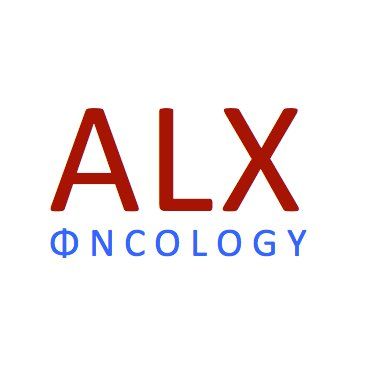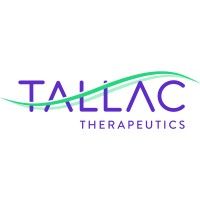Request Demo
Last update 08 May 2025
ALX Oncology Holdings, Inc.
Last update 08 May 2025
Overview
Tags
Neoplasms
Skin and Musculoskeletal Diseases
Digestive System Disorders
Antibody drug conjugate (ADC)
Fusion protein
Immune stimulating antibody conjugate (ISAC)
Disease domain score
A glimpse into the focused therapeutic areas
No Data
Technology Platform
Most used technologies in drug development
No Data
Targets
Most frequently developed targets
No Data
| Disease Domain | Count |
|---|---|
| Neoplasms | 4 |
| Immune System Diseases | 1 |
| Endocrinology and Metabolic Disease | 1 |
| Hemic and Lymphatic Diseases | 1 |
| Top 5 Drug Type | Count |
|---|---|
| Antibody drug conjugate (ADC) | 2 |
| Fusion protein | 1 |
| Immune stimulating antibody conjugate (ISAC) | 1 |
Related
6
Drugs associated with ALX Oncology Holdings, Inc.Target |
Mechanism CD47 inhibitors |
Active Org. |
Originator Org. |
Active Indication |
Inactive Indication |
Drug Highest PhasePhase 2/3 |
First Approval Ctry. / Loc.- |
First Approval Date- |
Target |
Mechanism TLR9 agonists [+1] |
Active Org. |
Originator Org. |
Active Indication |
Inactive Indication- |
Drug Highest PhasePhase 1 |
First Approval Ctry. / Loc.- |
First Approval Date- |
Target |
Mechanism EGFR modulators |
Active Org. |
Originator Org. |
Active Indication |
Inactive Indication- |
Drug Highest PhaseIND Approval |
First Approval Ctry. / Loc.- |
First Approval Date- |
9
Clinical Trials associated with ALX Oncology Holdings, Inc.NCT05467670
Safety and Efficacy of Anti-CD47, ALX148 in Combination with Liposomal Doxorubicin and Pembrolizumab in Patients with Recurrent Platinum-resistant Ovarian Cancer: Phase II Study
Immunotherapy with immune checkpoint inhibitors, including pembrolizumab, have emerged as a promising option in several solid cancers with durable effect and low toxicity profile. However, the benefit is limited to smaller subset of solid tumors. This trial involves the enhancement of current immune checkpoint-based immunotherapy with ALX148, an agent that inhibits CD47 (a trans-membrane protein that is highly expressed on the surface of many solid tumors as compared to normal cells).
Start Date30 Mar 2023 |
Sponsor / Collaborator |
NCT05524545
A Phase 1, Open-label, Multicenter, Safety, Pharmacokinetic, Pharmacodynamic Study of ALX148 in Combination With Enfortumab Vedotin and/or Other Anticancer Therapies in Subjects With Urothelial Carcinoma (ASPEN-07)
AT148007 is a Phase 1, open-label, multicenter, safety, pharmacokinetic, pharmacodynamic study of ALX148 in combination with enfortumab vedotin and/or other anticancer therapies in subjects with urothelial carcinoma.
Start Date02 Nov 2022 |
Sponsor / Collaborator |
NCT05167409
A Phase II Study (With Safety run-in) of Evorpacept (ALX148) in Combination With Cetuximab and Pembrolizumab in Patients With Refractory Microsatellite Stable Metastatic Colorectal Cancer
This Phase 2 clinical study will evaluate evorpacept (ALX148) in combination with cetuximab and pembrolizumab for refractory microsatellite stable metastatic colorectal cancer
Start Date28 Jul 2022 |
Sponsor / Collaborator |
100 Clinical Results associated with ALX Oncology Holdings, Inc.
Login to view more data
0 Patents (Medical) associated with ALX Oncology Holdings, Inc.
Login to view more data
10
Literatures (Medical) associated with ALX Oncology Holdings, Inc.05 Apr 2024·Cancer Research
Abstract CT060: Phase 1 study of azacitidine in combination with evorpacept for higher-risk myelodysplastic syndrome (MDS)
Author: Lee, Je-Hwan ; Garcia-Manero, Guillermo ; Jin, Feng ; Shin, Dong-Yeop ; Sayar, Hamid ; Kishtagari, Ashwin ; An, Grace ; O'Connell, Casey ; Burgues, Juan M. Bergua ; Schwartz, Richard S. ; Forgie, Alison J. ; Sanikommu, Srinivasa R. ; Tsiatis, Athanasios C. ; Al-Kali, Aref ; Rao, Mayank ; Diez-Campelo, Maria ; Altman, Jessica K. ; Santillana, Guillermo Sanz ; Garcia-Hernandez, Carmen ; Jang, Jun-Ho ; Scott, Bart L. ; Erba, Harry P.
15 Nov 2022·Blood
Evorpacept (ALX148), a CD47-Blocking Myeloid Checkpoint Inhibitor, in Combination with Azacitidine and Venetoclax in Patients with Acute Myeloid Leukemia (ASPEN-05): Results from Phase 1a Dose Escalation Part
Author: Guan, Shanhong ; Garcia-Manero, Guillermo ; Fong, Abraham P. ; Forgie, Alison J. ; Abaza, Yasmin ; Jin, Feng ; Tsiatis, Athanasios C. ; Przespolewski, Amanda ; Byrne, Michael ; Erba, Harry P.
15 Feb 2022·Cancer Research
Abstract OT1-14-01: Zanidatamab in combination with ALX148 in advanced human epidermal growth factor receptor 2 (HER2)-expressing cancers, including breast cancer: A phase 1b/2, multicenter, open-label, dose-finding and cohort-expansion study (ZWI-ZW25-204)
Author: Chaves, Jorge ; Gartner, Elaina ; Fang, Bruno ; Randolph, Sophia ; Meric-Bernstam, Funda ; Yeung, Kay ; Patel, Manish R. ; Brufsky, Adam ; Omidpanah, Adam ; Montero, Alberto J. ; Hurvitz, Sara A. ; Parajuli, Ritesh ; Fong, Abraham
132
News (Medical) associated with ALX Oncology Holdings, Inc.02 May 2025
SOUTH SAN FRANCISCO, Calif., May 02, 2025 (GLOBE NEWSWIRE) -- ALX Oncology Holdings Inc., ("ALX Oncology" or the "Company") (Nasdaq: ALXO), a clinical-stage biotechnology company advancing a pipeline of novel therapies designed to treat cancer and extend patients’ lives, today announced plans to report its first quarter 2025 financial results on Thursday, May 8th, 2025, before market open.
The company will not be hosting a teleconference in conjunction with its financial results press release.
About ALX Oncology ALX Oncology (Nasdaq: ALXO) is a clinical-stage biotechnology company advancing a pipeline of novel therapies designed to treat cancer and extend patients’ lives. ALX Oncology’s lead therapeutic candidate, evorpacept, has demonstrated potential to serve as a cornerstone therapy upon which the future of immuno-oncology can be built. Evorpacept is currently being evaluated across multiple ongoing clinical trials in a wide range of cancer indications. ALX Oncology’s second pipeline candidate, ALX2004, is a novel EGFR-targeted antibody-drug conjugate with a differentiated mechanism of action and is anticipated to enter Phase 1 trials mid-2025. More information is available at www.alxoncology.com and on LinkedIn @ALX Oncology.
Investor Relations Contact: Elhan Webb, CFA, IR Consultant ewebb@alxoncology.com
Media Contact: Audra Friis, Sam Brown, Inc. audrafriis@sambrown.com (917) 519-9577
ADCFinancial StatementPhase 1
27 Apr 2025
SOUTH SAN FRANCISCO, CA, USA I April 25, 2025 I
ALX Oncology Holdings Inc., (“ALX Oncology” or the “Company”) (Nasdaq: ALXO), a clinical-stage biotechnology company advancing a pipeline of novel therapies designed to treat cancer and extend patients’ lives, today announced topline data from its Phase 2 ASPEN-03 and ASPEN-04 clinical trials. The company’s investigational CD47-blocker evorpacept, when added to Merck’s (known as MSD outside of the US and Canada) anti-PD-1 therapy, KEYTRUDA
®
(pembrolizumab) with or without chemotherapy, did not meet the primary endpoints in the ASPEN-03 and ASPEN-04 trials of improved objective response rates (ORR) as compared to historical controls of pembrolizumab alone and pembrolizumab with chemotherapy, respectively, as a first-line treatment in patients with advanced head and neck squamous cell carcinoma (HNSCC). The combination of evorpacept and pembrolizumab with or without chemotherapy in ASPEN-03 and ASPEN-04 demonstrated a manageable safety profile and was consistent with what has been previously reported for pembrolizumab and chemotherapy in this setting. Although the company will no longer pursue evorpacept in combination with pembrolizumab in HNSCC, multiple clinical trials of evorpacept in combination with anti-cancer antibodies will continue based on established proof-of-concept.
Evorpacept blocks the ‘don’t eat me’ signal transmitted by CD47 on the surface of cancer cells that these cells use to evade detection by the immune system. As its primary mechanism of action, evorpacept is uniquely designed to stimulate macrophages to selectively attack cancer cells and not healthy cells, when combined with active anti-cancer antibodies. This mechanism has translated into durable clinical responses and a well-tolerated safety profile in HER2-positive gastric and HER2-positive breast cancer clinical trials. To further explore the benefit in this setting, evorpacept is currently being evaluated in combination with various anti-cancer antibodies in colorectal cancer, breast cancer, non-Hodgkin lymphoma and multiple myeloma.
In the ASPEN-03 and ASPEN-04 clinical trials, evorpacept was combined with pembrolizumab with or without chemotherapy to investigate a second and distinct mechanism of action. This discrete approach explored the concept that evorpacept may enhance T-cell priming by activating dendritic cells and stimulating the adaptive immune system. The trial outcomes were not sufficiently supportive of advancing evorpacept in combination with pembrolizumab in HNSCC into a registrational trial.
“While there were encouraging trends in ASPEN-03 in ORR versus the historical and internal control, we’ve decided not to pursue evorpacept and pembrolizumab in head and neck cancer in light of our prioritization of the more established anti-cancer antibody combination program based on multiple positive studies,” said Alan Sandler, M.D., Chief Medical Officer at ALX Oncology. “We are disappointed that these studies did not meet their primary endpoints, most importantly for the patients for whom current standard-of-care treatment approaches fall short, and we thank all who participated in the trials.”
“Moving forward, we are continuing to rapidly advance our clinical program combining evorpacept with anti-cancer antibodies supported by robust clinical data across trials in multiple tumor types. Evorpacept has demonstrated response rates and durability beyond what is expected from standard of care across several studies when combined with HERCEPTIN
®
, zanidatamab and RITUXAN
®
,” said Jason Lettmann, Chief Executive Officer at ALX Oncology. “Based on the positive data and strong mechanistic rationale, we maintain our confidence in the evorpacept clinical development program and intend to deliver on that promise with additional clinical data in breast cancer and colorectal cancer in the near-term. With evorpacept and ALX2004, our novel EGFR-targeted antibody-drug conjugate, we continue our commitment to bringing forth meaningful therapies for patients living with cancer.”
Detailed findings from the ASPEN-03 and ASPEN-04 trials will be submitted to a future medical meeting.
KEYTRUDA
®
is a registered trademark of Merck Sharp & Dohme LLC, a subsidiary of Merck & Co., Inc., Rahway, NJ, USA.
About ASPEN-03 and ASPEN-04 Clinical Trials
ASPEN-03 and ASPEN-04 are randomized, multi-center, international Phase 2 trials evaluating evorpacept, ALX Oncology’s investigational CD47-blocking therapeutic that uniquely combines a high-affinity CD47-binding domain with an inactivated proprietary Fc domain, in patients with metastatic or unresectable, recurrent HNSCC who have not yet been treated for their advanced disease. The ASPEN-03 trial (
NCT04675294
) is evaluating evorpacept in combination with Merck’s anti-PD-1 therapy, KEYTRUDA
®
(pembrolizumab) against pembrolizumab alone for the treatment of patients whose HNSCC is PD-L1 positive. The ASPEN-04 trial (
NCT04675333
) is evaluating evorpacept in combination with pembrolizumab and chemotherapy against pembrolizumab and chemotherapy alone in patients with HNSCC, regardless of PD-L1 status. Patient characteristics in the trials (N=346) were generally well-balanced across arms. The primary endpoints for the ASPEN-03 and ASPEN-04 trials is ORR compared to historical control. Key secondary endpoints for both trials are safety, duration of response (DOR), progression-free survival (PFS) and overall survival (OS).
About Head and Neck Squamous Cell Carcinoma (HNSCC)
HNSCC is a serious and life-threatening disease that originates in the squamous cells lining the mucosal surfaces of the head and neck, including the mouth, throat, voice box, sinuses and nasal cavity. HNSCC is the seventh most common cancer worldwide and the incidence of HNSCC is expected to increase 30% by 2030. Despite current standard-of-care therapies and recent advancements in diagnosis and treatment, people with HNSCC face a poor prognosis, particularly when diagnosed at advanced stages. Further, the survival rate for HNSCC has only modestly improved in recent years, even with the availability of new treatment modalities, underscoring a need for improved therapeutics.
About Evorpacept
ALX Oncology’s lead therapeutic candidate, evorpacept, is a highly differentiated potential best- and first-in-class CD47 checkpoint inhibitor and one of the most advanced checkpoint inhibitors to target and activate the innate immune system. Evorpacept was intentionally designed to maximize the clinical potential of blocking CD47, while reducing the toxicities associated with previous approaches to CD47 blockade. In clinical studies across a wide spectrum of tumor types in more than 700 patients to date, evorpacept has demonstrated potential to enhance the therapeutic activity of many of the most important cancer therapies available today, contributing an additional, differentiated immuno-oncology mechanism. Based on this potential, ALX Oncology is advancing a robust clinical program evaluating evorpacept in a wide range of cancer indications, prioritizing its combination with anti-cancer antibodies in breast, gastric and colon cancers. The U.S. Food and Drug Administration (FDA) has granted Fast Track designation to evorpacept for the second-line treatment of patients with HER2-positive gastric or GEJ carcinoma. Additionally, both the FDA and European Commission have granted Orphan Drug Designation for this indication.
About ALX Oncology
ALX Oncology (Nasdaq: ALXO) is a clinical-stage biotechnology company advancing a pipeline of novel therapies designed to treat cancer and extend patients’ lives. ALX Oncology’s lead therapeutic candidate, evorpacept, has demonstrated potential to serve as a cornerstone therapy upon which the future of immuno-oncology can be built. Evorpacept is currently being evaluated across multiple ongoing clinical trials in a wide range of cancer indications. ALX Oncology’s second pipeline candidate, ALX2004, is a novel EGFR-targeted antibody-drug conjugate with a differentiated mechanism of action and is anticipated to enter Phase 1 trials mid-2025. More information is available at
www.alxoncology.com
and on LinkedIn
@ALX Oncology
.
SOURCE:
ALX Oncology
Phase 2Orphan DrugImmunotherapyClinical ResultFast Track
25 Apr 2025
ALX Oncology’s efforts to progress a CD47 combo hit a major speed bump.
The company
said
Friday that two trials testing different combinations of its CD47-targeting drug failed to meet their primary endpoints in head and neck squamous cell carcinoma. One study evaluated evorpacept with Merck’s Keytruda, and the other looked at evorpacept with Keytruda and chemotherapy.
ALX will no longer develop evorpacept in combination with Keytruda as a result. Already a penny stock, ALX’s share price
$ALXO
was down about 5% on Friday morning.
The results, which did not include specific data, are a major blow to ALX, which was hopeful that success in combination therapies
could make the case for the value of the CD47 pathway
. Most biopharma companies pulled back from using CD47 after Gilead had to halt a Phase 3 study over safety concerns in 2022.
By combining evorpacept with Keytruda and other medicines like Herceptin and Rituxan, ALX believed CD47-targeting drugs could boost efficacy. But the tests with Keytruda returned a resounding “no,” punching a hole in ALX’s theory.
Investors have become increasingly skeptical of CD47’s promise. They were less than impressed with
data in July
that looked at an evorpacept combination with Herceptin and chemotherapy after cheering earlier
results
in gastric cancer.
Still, ALX said it plans to continue working on combinations with other cancer drugs besides Keytruda.
Phase 2
100 Deals associated with ALX Oncology Holdings, Inc.
Login to view more data
100 Translational Medicine associated with ALX Oncology Holdings, Inc.
Login to view more data
Corporation Tree
Boost your research with our corporation tree data.
login
or

Pipeline
Pipeline Snapshot as of 22 Dec 2025
The statistics for drugs in the Pipeline is the current organization and its subsidiaries are counted as organizations,Early Phase 1 is incorporated into Phase 1, Phase 1/2 is incorporated into phase 2, and phase 2/3 is incorporated into phase 3
Discovery
1
1
Preclinical
IND Approval
1
1
Phase 3 Clinical
Other
2
Login to view more data
Current Projects
| Drug(Targets) | Indications | Global Highest Phase |
|---|---|---|
Evorpacept ( CD47 ) | HER2-expressing Gastric Adenocarcinoma More | Phase 3 Clinical |
ALX2004 ( EGFR ) | EGFR positive Neoplasms More | IND Approval |
ALTA-002 ( TLR9 ) | Advanced cancer More | Preclinical |
WO2022236136 ( CTSB ) | Neoplasms More | Discovery |
OG-1970 ( CFD ) | Dystrophy, Macular More | Pending |
Login to view more data
Deal
Boost your decision using our deal data.
login
or

Translational Medicine
Boost your research with our translational medicine data.
login
or

Profit
Explore the financial positions of over 360K organizations with Synapse.
login
or

Grant & Funding(NIH)
Access more than 2 million grant and funding information to elevate your research journey.
login
or

Investment
Gain insights on the latest company investments from start-ups to established corporations.
login
or

Financing
Unearth financing trends to validate and advance investment opportunities.
login
or

AI Agents Built for Biopharma Breakthroughs
Accelerate discovery. Empower decisions. Transform outcomes.
Get started for free today!
Accelerate Strategic R&D decision making with Synapse, PatSnap’s AI-powered Connected Innovation Intelligence Platform Built for Life Sciences Professionals.
Start your data trial now!
Synapse data is also accessible to external entities via APIs or data packages. Empower better decisions with the latest in pharmaceutical intelligence.
Bio
Bio Sequences Search & Analysis
Sign up for free
Chemical
Chemical Structures Search & Analysis
Sign up for free



